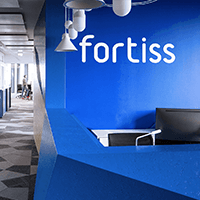Opening up new digital exchanges for producers and customers
Industry and commercial businesses are relying more often on renewable raw and waste materials from agricultural and forestry sources when selecting raw materials for production. After all, manufacturers are increasingly recognizing the importance of alternative raw materials, which they also view as the “gold” for a sustainable economy. Another major advantage is the fact that reusing organic raw materials is much more efficient and sustainable than disposal, a costly approach. The digital raw materials exchange project was created in 2019 with the aim of extensively reusing waste and raw materials over the long term. The goal was to create an online exchange that brings together players in the organic materials economy via a digital economic platform. The platform is intended to promote the development of value chain networks and thus contribute to the development and establishment of an active exchange that serves to conserve resources.
To assess the needs of producers and customers in an online exchange for sustainable raw materials, KErn kicked-off the project with an online survey and qualitative interviews with producers and processors of raw materials. The results reflected a high degree of interest in an online exchange and illustrated the considerable diversity of renewable raw and waste materials that are available and the large demand. With the help of workshops involving potential users and stakeholders, KErn also identified the requirements that users have on an online exchange and the strategic and operational advantages and risks that a trading platform for raw and waste materials harbors. The analysis also revealed the limits of dealing with organic raw and waste materials, to some extent including short shelf lives and fluctuating product amounts and quality. In this case a digital exchange could help through faster and more flexible identification of regional trading partners, as well as through the bundling of amounts for a specific raw material.
Reuse intended as long-term approach
The empirically-acquired results and requirements provided fortiss a foundation for the development of a “digital exchange for sustainable raw materials” prototype. The fortiss scientists followed platform engineering approaches to create a modular and reusable system based on open source software. The digital platform bundles the aspects of food waste sustainability, digitalization, connectivity and reduction and creates added value by opening up new cross-industry value chains. As a result, byproducts that have so far been viewed as waste products receive new utility. Both suppliers and buyers profit from this service.
The online exchange offers various possibilities:
- Advertisement placement – producers can use this function to offer their renewable raw and waste materials.
- Search and find – interested users can find available raw and waste materials according to type, amount and region.
- Service – with this function users can compare costs, establish contacts and search postal codes.
- Information - provides information on what the digital commodity exchange for sustainable commodities offers and how interested parties can benefit from it in their business
Several examples on the KErn homepage for the digital exchange for renewable raw materials illustrate what is already possible: from lupine for coffee and ice cream, nuts as a snail-deterrent alternative to bark mulch and olives as an ecological tanning agent, to straw as highly-efficient packaging material.
Wide range of options for prototype implementation
The project was successfully completed, serves as of now the digital networking and contacting and addresses among others agricultural producers, industrial processors, but also research groups. In the course of the cross-cluster project WeReLaNa (Nutrition Cluster, Environmental Cluster and Chemistry Cluster Bavaria), the digital raw material exchange is assessed across industries and blockchain is evaluated as a possible technology for digital raw/residual material platforms. Within the framework of online seminars, the opportunities and challenges of raw and residual material trade and many other "related" aspects will be discussed, based on the keynote speeches of invited experts.
The online exchange prototype can be used and further developed by those interested in the form of open source software. The source code can be changed to a “user product”, such as commercial, non-open source software. The research institute of the Free State of Bavaria for software-intensive systems is making the source code available in the git.fortiss.org/RB library, where it is available through the LGPL v3 open source software license. The code can be utilized and further developed under license conditions by start-ups, companies and associations and others.


